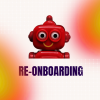CV Guide – for every type of job seeker
Writing your Curriculum Vitae (CV) although seems like a basic task, is one that leaves many people stumped thinking ‘what should I include?’ ‘How long should it be?’ ‘What details should I add?’ ‘How do I tailor my CV to a specific job?’… Well, don’t worry we’re here to help you kick-start your job search journey with our CV guide for every type of job seeker.
How long should your CV be?
This depends on the person and their experience, the more experience the more pages you will need. We recommend keeping it short but sweet, you want enough space to add any important details but not too long that the reader is bored.
Our recommendations: Graduate – 2 pages max | Experienced Professional – 3-4 pages
Do I need a headshot/image?
Simple answer – No.
This is completely up to you, however, if you do want to use an image, ensure it is a professional photo with a plain background. No photos from nights out no matter how cute you look!
What do I include?
- Contact details – Your name, your email, your mobile, your LinkedIn page, and your location – this doesn’t need to be your home address, just your area, to give the hiring manager or recruiter a good idea of where suits you for roles.
- Profile – a few words stating who you are and what you do.
- Career History – most CVs have this section in chronological order, however, if you want to tailor your CV to a job, but most relevant first. Ensure you’re including the dates of employment, the company, and your title, then a brief statement of what you do on the day-to-day in the role, how you do it, and what you achieved.
- Education – this one is pretty self-explanatory, add any courses or certificates you’ve completed, the dates of study, the institution, and your final grade.
- Skills – both soft skills and hard skills are important to have on your CV.
Soft skills are the skills that enable you to fit in at a workplace. They include your personality, attitude, flexibility, motivation, and manners. Soft skills are so important that they are often the reason employers decide whether to keep or promote an employee.
Hard skills are also known as technical skills. Hard skills are teachable abilities or skill sets that are easy to quantify. Typically, you’ll learn hard skills in the classroom, through books or other training materials, or on the job.
How to beat the CRM?
When you send your CV to a recruitment agency or company it gets added to their systems – where sadly a lot of candidates can get lost. You can avoid this by utilising keywords.
These keywords would include; any system you know, tasks you would complete on the day-to-day, your job title, industries you’ve worked in, etc…
Feel free to contact us to discuss any of your hiring needs.








